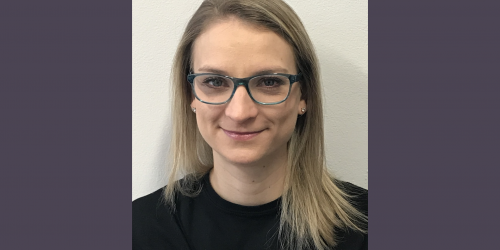
#LivefromLucy: 'Preventing weight gain during the pandemic: A randomised controlled trial of a behavioural intervention'
Watch this informative virtual talk in which Dr Julia Mueller discussed weight management during the COVID-19 pandemic.
This informative Live from Lucy talk with Dr Jessica Taylor discussed reducing treatment-related toxicity for children with brain cancer.
Medulloblastoma is the most common primary brain cancer in children and can be divided into four sub-types based on clinical and genetic differences. One subgroup, known as WNT-medulloblastoma, is the most widely researched and has an excellent prognosis, with overall survival around 90%. However, the post-treatment quality of life for WNT-medulloblastoma survivors is less encouraging, due to the barrage of chemotherapy, radiotherapy and surgical interventions these children have at such a young age. The over-arching goal of Dr Taylor's research is to develop novel treatments and interventions that reduce the impact that treatment has on survivors enabling them to life a full and healthy life post-cancer. Alongside her main research into novel antibody-drug conjugates, a new grant from the Little Princess Trust will enable Dr Taylor to investigate how we might repurpose antihistamines to act synergistically with current standard-of-care treatment. By taking advantage of the differences between cancer cell and healthy lysosomal membranes, we can use anti-histamines to overload the lysosome, triggering natural cell-death mechanisms. By adding a non-toxic and cost-effective approved antihistamine, we aim to reduce doses of irradiation and/or chemotherapy to improve quality of life, whilst maintaining the same level of therapeutic success currently seen in the clinic.
About the Speaker
Dr Jessica Taylor is currently a Postdoctoral Research Associate in the Gilbertson Lab at CRUK Cambridge Institute. She recently completed her PhD studies in repurposing chemotherapeutics to treat Glioblastoma Multiforme at the University of Manchester. Dr Taylor's current work in developmental paediatric brain tumours focuses on novel therapeutics that will mitigate post-therapeutic morbidity in brain cancer survivors.